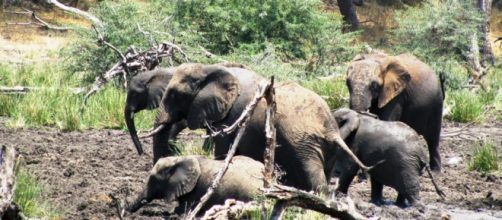In 2014, the US restricted the importation of elephant trophies from Zimbabwe and Tanzania. Despite appeals from Zimbabwe that the ban be lifted as conservation in the country is reliant on the proceeds from hunting, the ban remains in place. This week, it looks like the USA will possibly extend the ban to elephants in all countries. By upgrading elephants to endangered, it is hoped that new federal regulations will restrict the illegal trade in ivory
Lions upgraded last year
The upgrade of lions to endangered status in December 2015 was greeted with acclaim by animal activists groups and with dismay from African countries who feel controlled hunting is an essential tool for the sustainable management of wildlife resources.
The death of Cecil the Lion brought hunting and conservation into the limelight last year after he was shot by an American bow hunter.
The response from African countries to the restrictions on trophies has been one of anger and Zimbabwe, in particular, is now targeting the German, Russian and Asian hunting market. Namibia has recently enacted a ban on people calling for bans on controlled hunting in the country. Even Prince William, who is leading the way in anti-trafficking initiatives, was quoted by ITV this week as stating that there is a place for controlled hunting that contributes to conservation management.
Clamping down on hunting endangered species
America is a strong and powerful nation, and a huge percentage of elephants and lion hunters across Africa come from that country.
The proposed new restrictions on elephants are expected to hurt the hunting industry across Africa. America itself supports the sustainable utilization of wildlife and natural resources within the USA, and this includes hunting. Many of the conservation bodies are quietly funded in the background by pro-hunters, but it is apparent that the clamps are coming down on hunting endangered species.
Hunting groups oppose bans
One of the largest and most influential groups, Safari Club International, filed an injunction against the original Zimbabwe restrictions on elephant trophies in 2014. The new proposed regulations will undoubtedly raise the ire of hunters once again, as they firmly believe that much of the anti-poaching operations in Africa are funded by hunters.
Conservation Force (CF) spokesman John Jackson explained to National Geographic at the time that hunting is part of the "national action (conservation) plan” in many African countries.
Strict protection under law
The FWS has cited hunting and poaching as reasons for the decline of elephants in Africa. They were responding to calls by the Humane Society International and other organizations who are pushing for the upgrade of elephants from threatened to endangered. The reasons given for the proposed new status of elephants lies in that fact that there were more than one million elephants when the animals were assigned threatened status in the 1970's. There are now less than 400000 left alive across the continent of Africa.
The HSUS and HSIare pushing for a fast revision to the Federal law that will grant elephants the “strictest protection under law.”

